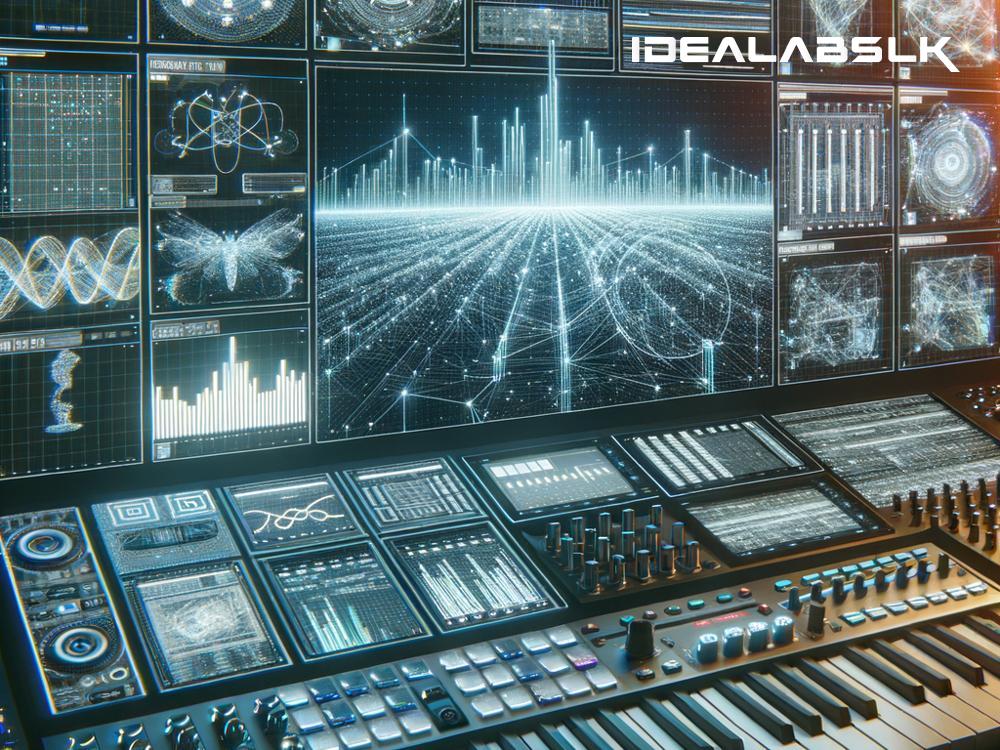AI in Gaming: How Artificial Intelligence Will Drive Future Game Soundtracks in 2025
As we look ahead to 2025, the gaming world is bustling with innovations, and artificial intelligence (AI) sits at the forefront of this transformative wave. AI is not just reshaping how games are played and created but is also setting the stage for a revolution in how game soundtracks are composed and implemented. Let’s dip into the future and explore how AI might influence the game soundtracks of tomorrow.
The Current Symphony: How AI Is Composing Today
Even now, AI has begun stepping into the role of a composer in various domains, including gaming. Tools equipped with AI can generate music based on specific instructions or even mimic the style of famous composers. This burgeoning partnership between AI and musicians is already hinting at a future where soundtracks are more adaptive, personalized, and dynamic than ever before.
The Future Harmony: AI-driven Soundtracks in 2025
By 2025, AI-generated music in games is expected to take several leaps forward. Here’s a glimpse of what that future might look like:
1. Adaptive and Dynamic Scores: Imagine playing a game where the music seamlessly adapts to your actions, the game environment, and the emotional tone of each scene. As you sneak through an enemy base, the music maintains a tense, suspenseful undertone, which dynamically shifts to an adrenaline-pumping score when you’re detected. AI in 2025 could make this adaptive scoring more refined and responsive, enhancing the gaming experience by making it incredibly immersive.
2. Personalized Game Soundtracks: Personalization is key in future technologies, and AI-generated soundtracks are no exception. AI could tailor music to match a player's preferences, altering the game's score in real-time to fit with the genres or instruments they enjoy most. Whether you're a fan of classical, rock, jazz, or electronic music, the game could incorporate elements of these styles into its score, making your gaming experience uniquely yours.
3. Emotional Engagement: AI’s ability to understand and interpret player emotions could lead to soundtracks that respond to how you’re feeling during gameplay. For instance, if the game detects frustration, it might cue a more soothing, encouraging soundtrack to help reduce stress. This kind of emotional synchronization between game and gamer will not only be groundbreaking but could also create a deeper level of engagement and satisfaction.
4. Unleashing Creative Potential: With the grunt work of music composition handled by AI, human composers can focus on the creative aspects of the soundtrack. This partnership could give rise to more innovative music styles and fusion genres that might be too complex or time-consuming to explore without AI assistance. The result would be a richer, more diverse soundscape in games that continually surprises and delights players.
5. Infinite Music Libraries: One of the most promising aspects of AI in game music is the potential for generating vast, ever-evolving music libraries. Because AI can create music in real-time, games could theoretically have infinite soundtracks that never repeat the same tune twice. This would mean that the music in games could remain fresh and engaging, even for players who spend hundreds of hours in the same game world.
The Challenges Ahead
The pathway to AI-driven game soundtracks is not without hurdles. Concerns over copyright and ownership of AI-generated music, ensuring the AI respects the emotional intent of the game developers, and the potential loss of jobs for traditional composers are topics of ongoing debate.
Furthermore, striking the perfect balance between AI and human creativity will be crucial. While AI can generate music, the human touch is essential for producing tracks that resonate deeply with players on an emotional level. Finding harmony between AI capabilities and human sensibility promises to be an exciting journey.
Sounding Off
Looking toward 2025, it’s clear that AI has the potential to redefine game soundtracks in ways we’re just beginning to imagine. From deeply personalized gaming experiences to infinite soundscapes that adapt to our every move, AI-generated music could become a core pillar of gaming immersion. As we navigate the challenges and opportunities ahead, one thing is certain: the future of game soundtracks is bound to be as dynamic and evolving as the games themselves.

